The rain was relentless when I arrived at Stirring the Pot, a Food Justice Fortnight event hosted by Bristol’s Trussell food banks at Boiling Wells Woodland. Yet, as people from different organisations pitched in, moving tables, shifting benches, setting up in the downpour, I felt a quiet hope for Bristol. Even as strangers, we seemed to understand each other. That sense of community, before anyone spoke a word, captured something vital about food justice here. It’s not just about filling empty stomachs. It’s about dignity, connection and the small acts that keep us going.
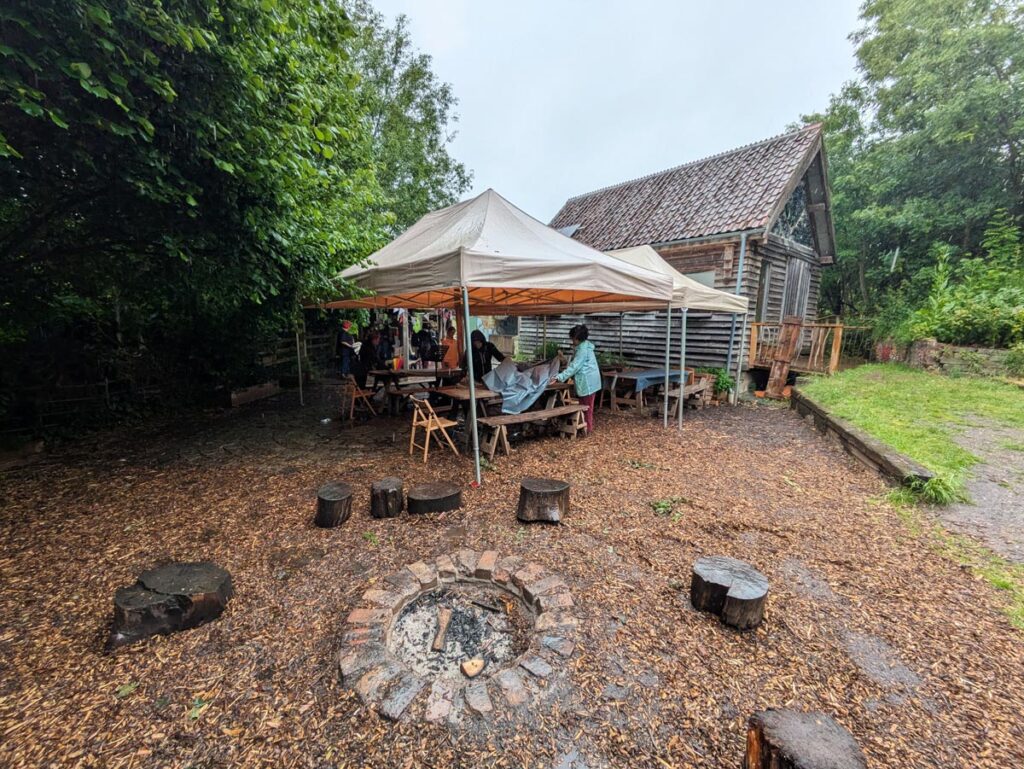
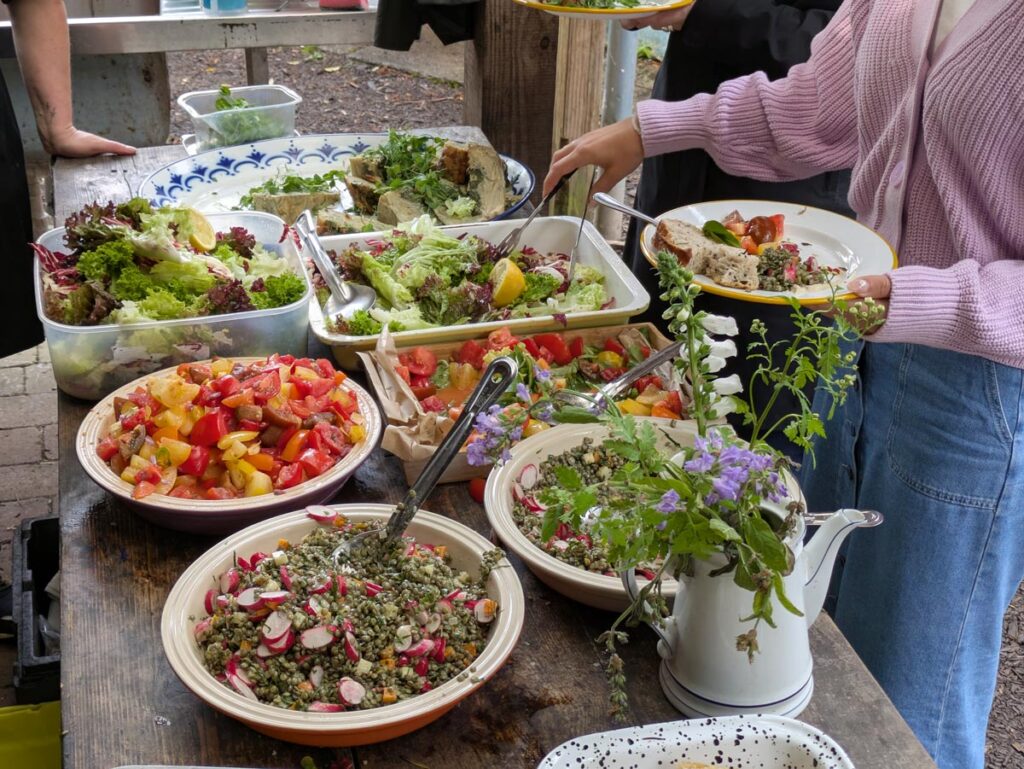
The event brought together campaigners, service providers and community members, all committed to food justice. The meal, cooked by Josh Eggleton, set a warm tone. But it was the poetry that cut deepest. Host Malaika Kegode asked us to share our favourite foods and the memories attached to them, then turn those into poems. When people began to read aloud, the tent fell silent.
Josephine Robinson’s words hit hard: “Choose heating or eating.” It’s a line that sums up the impossible choices facing so many in Bristol. Her poem also spoke of the emotional toll of being denied disability benefits: “I put the letter in the bin with my self-worth. And sank beneath the waves of despair into a lonely sea of poverty and disability.” Another poem by Lauren opened with, “She doesn’t sound like she can’t walk. That’s what they said.” You could feel the frustration and loss in every line.
Menny Donovan’s voice was steady as she read, “Justice, the forbidden fruit.” She went on, “Justice should be my rock, not my battle. I’m surviving, not thriving.” That distinction matters. Survival shouldn’t be the highest aspiration we offer people.
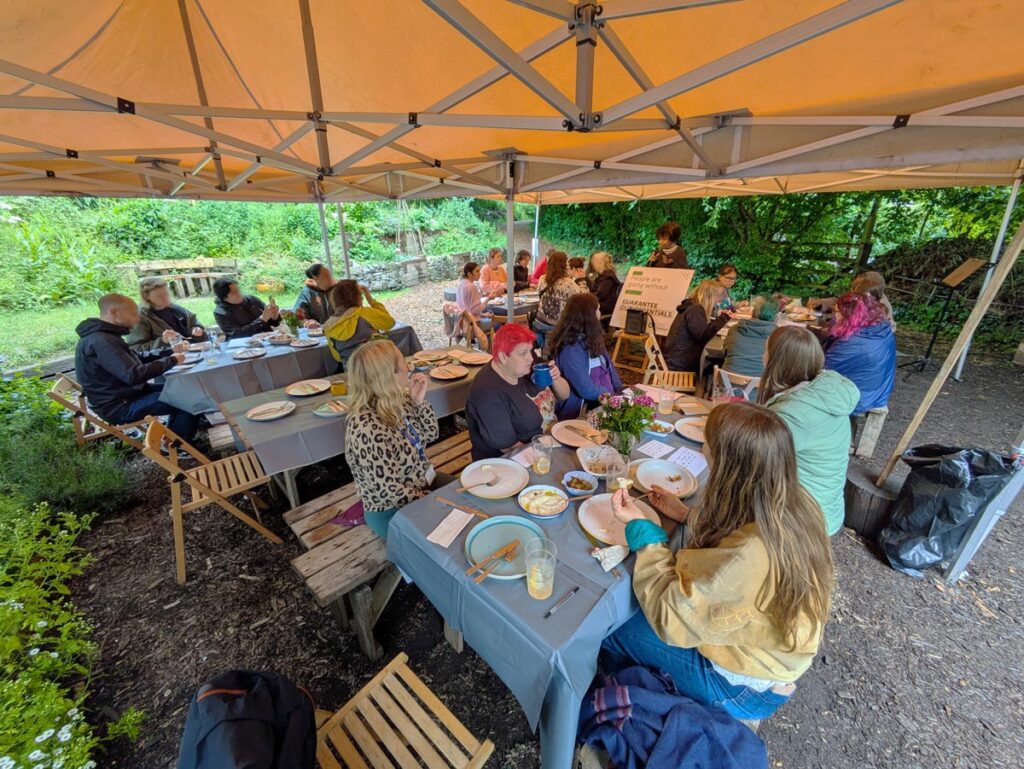
These weren’t abstract policy discussions. They were lived experiences, shared over food, connecting the campaign for an Essentials Guarantee to real stories. I met people from Shelter, Trussell, FareShare Southwest, and others, and saw how closely Bristol’s food justice network is woven. We are stronger when we work side by side.
The poems stayed with me. Lauren’s words: “Walking no longer sounds like flip flops because the physio says they are going to cause too much damage” brought home how poverty and disability shape even the smallest choices. Menny Donovan’s defiance rang out: “I refuse to lie down. Slowly, very slowly, turning the rock to sand.” Cheryl Swift, a money advisor, didn’t mince her words about Universal Credit: “It is designed to discriminate. It is designed to dehumanise. It is designed to oppress.” These lines, spoken in a tent with rain hammering down, showed the reality behind the statistics.
Bringing Food Justice Home to the Vassall Centre
A few weeks later, food justice came closer to home when Bristol Charities welcomed The Mazi Project to the Vassall Centre for a ‘Mazi on the Menu’ lunch. This wasn’t just another meal. Young people with lived experience of food insecurity led the way, cooking for staff and tenants. The Mazi Project’s approach is youth-led, supporting some of Bristol’s most vulnerable young people, including care leavers and asylum seekers. Their talented chefs brought everyone together, showing how food can shift from something that happens to people to something they create and share.
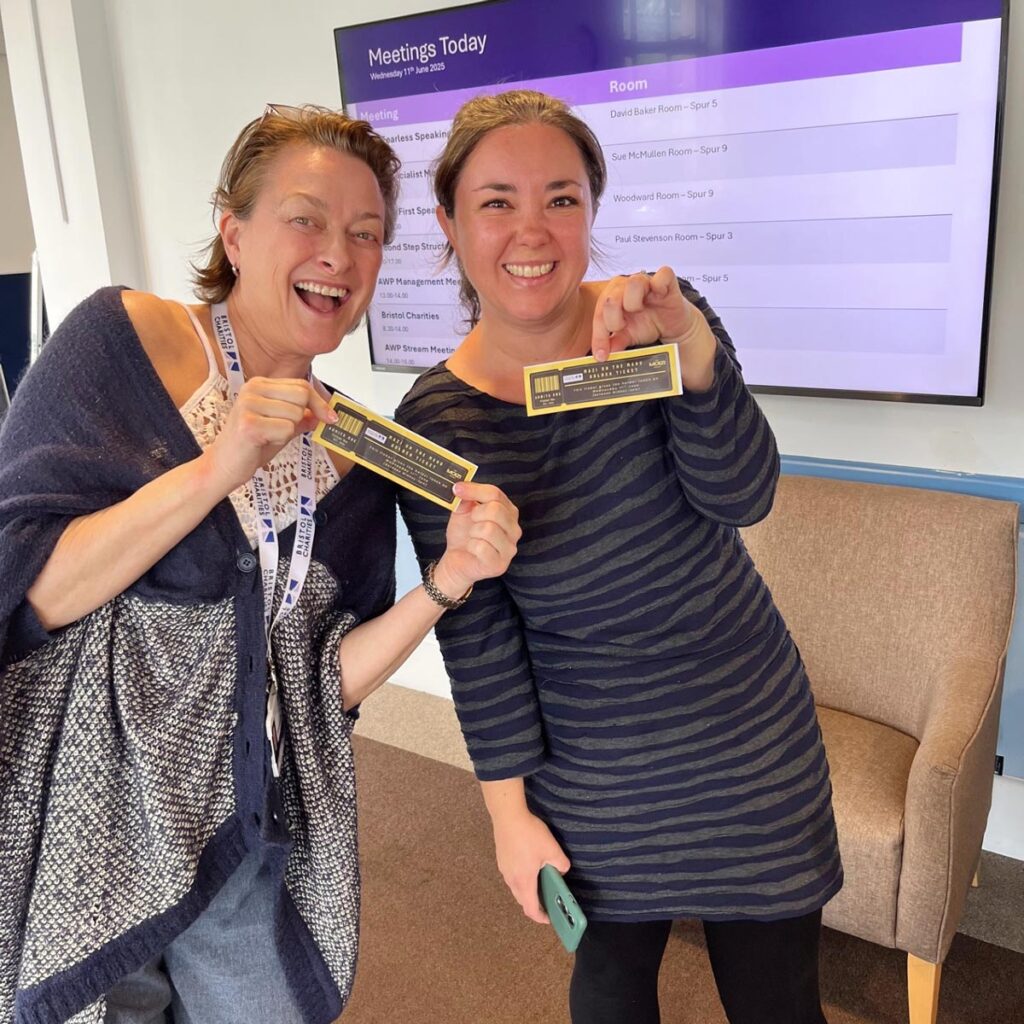
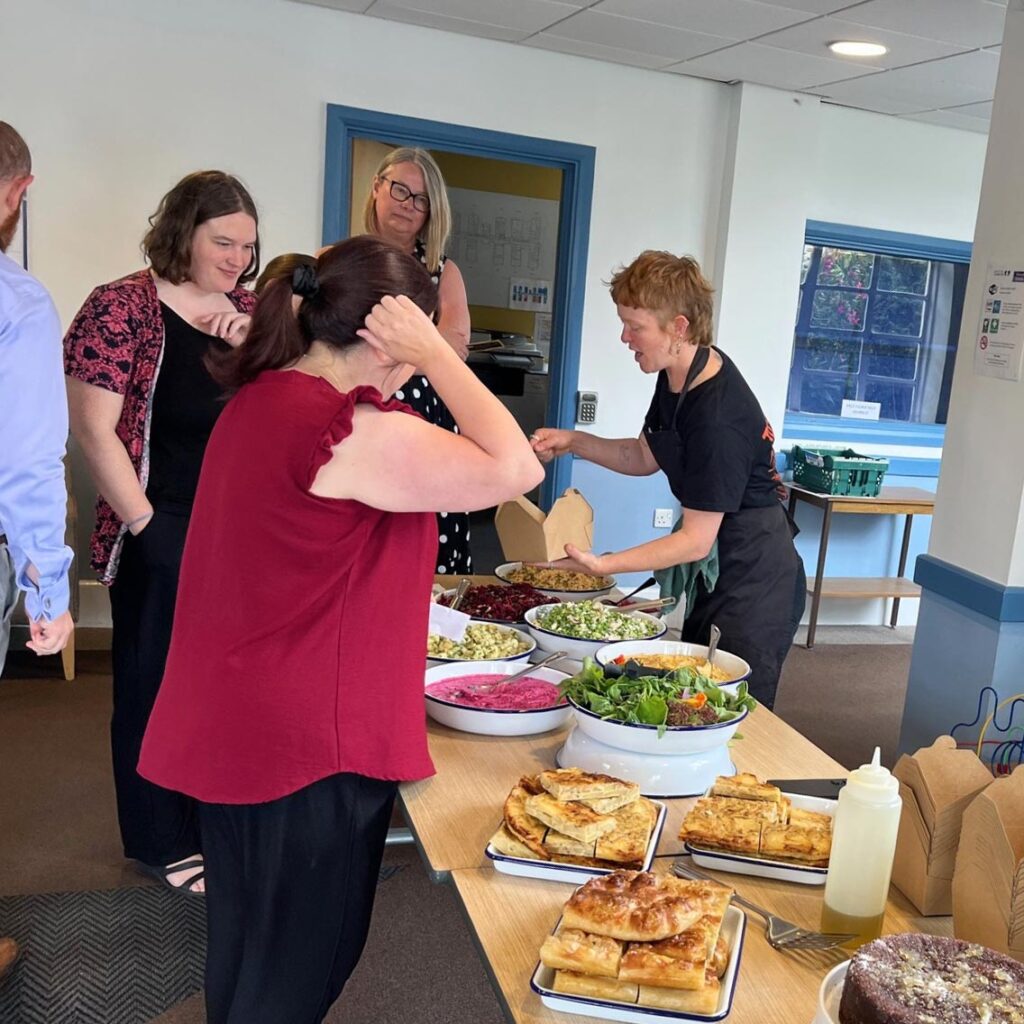
What struck me most was how naturally this matched Bristol Charities’ mission as a community hub. The Vassall Community Hub isn’t just a space; it’s a place for dignity, connection, and empowerment. The Mazi Project showed what happens when young people are given the tools and the platform to take their rightful place in Bristol’s food scene whilst nourishing their community.
The Power of Community Connection
Both events revealed something profound about Bristol’s food justice movement: it’s built on genuine relationships, not just services. From teamwork in the rain at Stirring the Pot to the welcome for Mazi’s young chefs at the Vassall Centre, I saw the spirit that makes Bristol’s approach so distinctive. It’s about people coming together, not just to meet needs, but to build something better.
Bristol Charities fits naturally in this network as a community anchor. Our roots in the city run deep, and our approach is shaped by a clear strategy focused on tackling deprivation where it’s felt most. We invest in neighbourhoods, create welcoming hubs, and offer affordable spaces that help local organisations and food projects thrive. By bringing together charities, volunteers, and residents, we enable collaborations like The Mazi Project to grow and new ideas to become reality.
Our commitment is long-term. We’re not just responding to immediate need, but building the foundations for lasting change – supporting innovative projects, developing new housing linked to community support, and strengthening the voluntary sector so it can keep delivering for Bristol. Our experience and resources mean we can back ambitious solutions and help create a city where everyone has access to good food, opportunity, and community.
What stands out is how easily different groups support each other. There’s no sense of competition, just a shared commitment to a fairer city. Change happens when we work together, each bringing our strengths to a common goal.
That hope I felt watching people gather in the rain at Stirring the Pot still inspires me. At Bristol Charities, we’ll keep opening our doors, building connections, and making sure dignity and community stay at the heart of everything we do.
